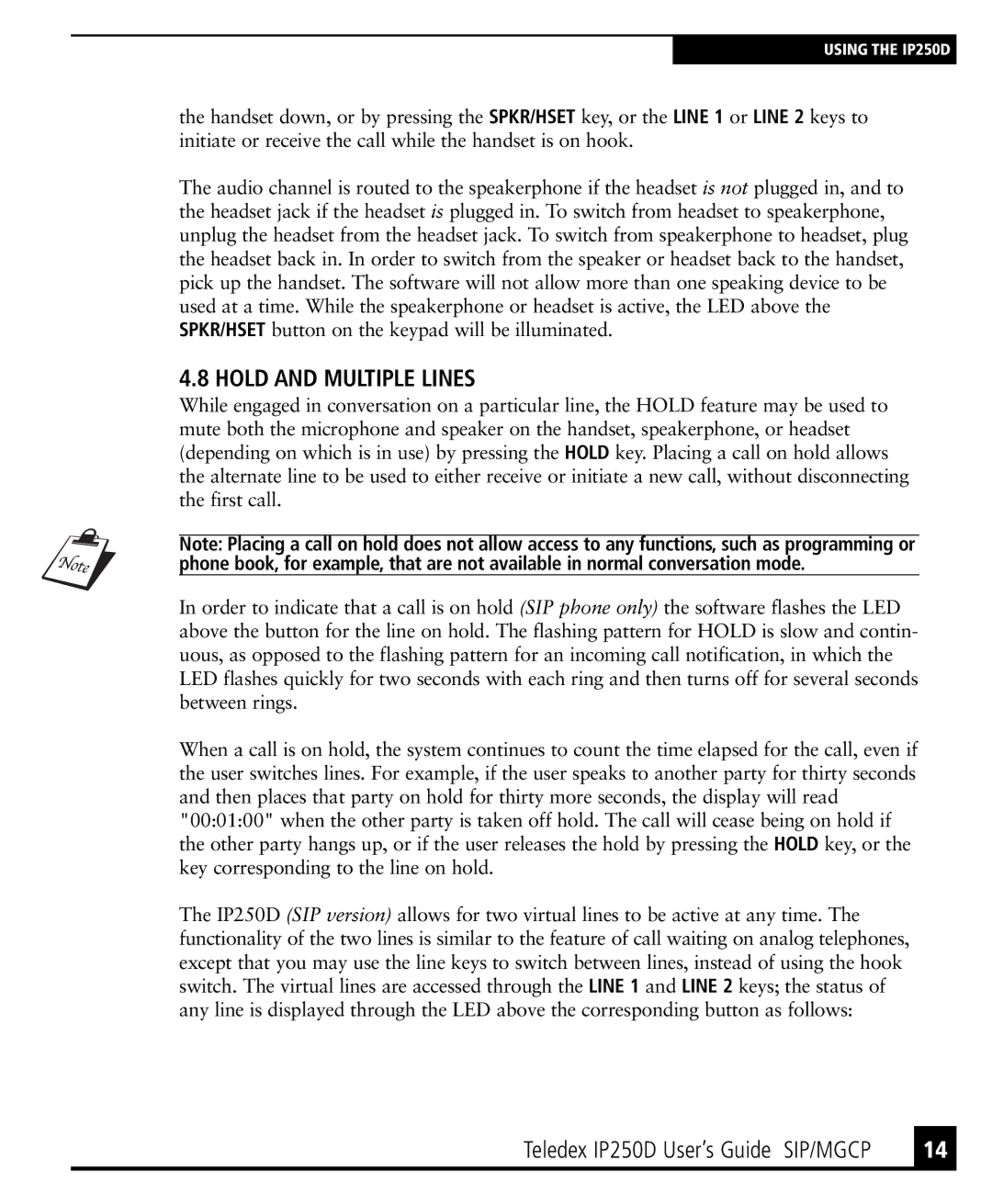
USING THE IP250D
the handset down, or by pressing the SPKR/HSET key, or the LINE 1 or LINE 2 keys to initiate or receive the call while the handset is on hook.
The audio channel is routed to the speakerphone if the headset is not plugged in, and to the headset jack if the headset is plugged in. To switch from headset to speakerphone, unplug the headset from the headset jack. To switch from speakerphone to headset, plug the headset back in. In order to switch from the speaker or headset back to the handset, pick up the handset. The software will not allow more than one speaking device to be used at a time. While the speakerphone or headset is active, the LED above the SPKR/HSET button on the keypad will be illuminated.
4.8 HOLD AND MULTIPLE LINES
While engaged in conversation on a particular line, the HOLD feature may be used to mute both the microphone and speaker on the handset, speakerphone, or headset (depending on which is in use) by pressing the HOLD key. Placing a call on hold allows the alternate line to be used to either receive or initiate a new call, without disconnecting the first call.
Note: Placing a call on hold does not allow access to any functions, such as programming or phone book, for example, that are not available in normal conversation mode.
In order to indicate that a call is on hold (SIP phone only) the software flashes the LED above the button for the line on hold. The flashing pattern for HOLD is slow and contin- uous, as opposed to the flashing pattern for an incoming call notification, in which the LED flashes quickly for two seconds with each ring and then turns off for several seconds between rings.
When a call is on hold, the system continues to count the time elapsed for the call, even if the user switches lines. For example, if the user speaks to another party for thirty seconds and then places that party on hold for thirty more seconds, the display will read "00:01:00" when the other party is taken off hold. The call will cease being on hold if the other party hangs up, or if the user releases the hold by pressing the HOLD key, or the key corresponding to the line on hold.
The IP250D (SIP version) allows for two virtual lines to be active at any time. The functionality of the two lines is similar to the feature of call waiting on analog telephones, except that you may use the line keys to switch between lines, instead of using the hook switch. The virtual lines are accessed through the LINE 1 and LINE 2 keys; the status of any line is displayed through the LED above the corresponding button as follows:
Teledex IP250D User’s Guide SIP/MGCP | 14 |
|
|
